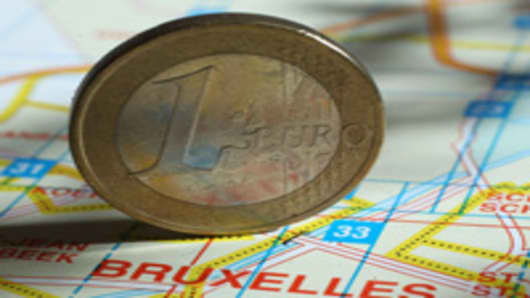Cyprus is increasingly likely to seek European aid to deal with the impact of the Greek crisis on its own banking system, the country’s central bank governor has told the Financial Times.
Panicos Demetriades acknowledged in an interview that with a deadline of the end of this month to find at least 1.8 billion euros ($2.2 billion) to recapitalize Cyprus Popular Bank , the country’s second largest lender, recourse to the European Union was becoming more probable. “Clearly the closer you get to the deadline the less unlikely it becomes,” he said, adding that the country was facing “an important crunch time.”
Michalis Sarris, Popular Bank’s chairman, also suggested the country had little alternative. He told the FT: “It is hard to see where [the capitalization] is coming from, if not Europe,” noting that “appetite to lend to Cyprus has dried up for many months now.”
Seeking emergency EU funds would be a bitter reversal for a country that until now has rejected European assistance, preferring instead to borrow from Russia, and which assumes the presidency of the 27-nation blocnext month.
It also highlights continuing contagion from the Greek crisis, which has hit Cyprus particularly hard because the country’s banks have lost more than 3 billion euros in the writedown of Greek sovereign debt and have more than 22 billion euros in outstanding loans to the Greek private sector. The latter dwarfs Cyprus’ gross domestic product of 18 billion euros.
Mr. Demetriades, who took office only last month, suggested it could still be possible to recapitalize Popular Bank in other ways, such as private sector funding or a loan from another country. Russia has already lent Cyprus 2.5 billion euros to help the government meet its debt payments.
He also noted Cyprus was in talks with European authorities in a bid to extend the June 30 deadline until the end of August.
But he added: “There is a backstop there and the backstop is the European Financial Stability Facility and that backstop will be used if necessary.”
Cyprus still hopes to avoid entering into a full economic adjustment program, as Ireland, Portugal, and Greece have done. Such a move would be widely seen at home as ceding fiscal sovereignty. But avoiding such outside controls is unlikely as EU officials have made clear any bailout funding, even if it is just to recapitalize banks, comes with the same “conditionality” as direct funding for sovereigns.
Demetris Christofias, the country’s communist president, promised on Friday that there would be “no new measures” against workers while he remained in office. He said it was not a given that Cyprus would enter the EFSF, but that he could not rule it out either.
Cypriot officials argue that their problems stem from Greece rather than being home grown and say they plan to separate Popular Bank’s Greek activities from the rest of the bank.
But analysts say such measures still fall short of the steps needed to ringfence the Cypriot financial system from all of their assets in Greece.
Cyprus is particularly sensitive to problems in its financial services sector, a principal motor of its economy. But officials and analysts discount suggestions that Nicosia could follow Athens out of the euro in the event of a Greek exit.
“It’s not clear what the competitive advantage would be of a devaluation,” said Fiona Mullen, an economic consultant based in Nicosia, adding that there was no sign of capital flight from the country.
Under EU rules, banks have to increase their core tier 1 capital to 9 percent of their risk weighted assets by June 30.


